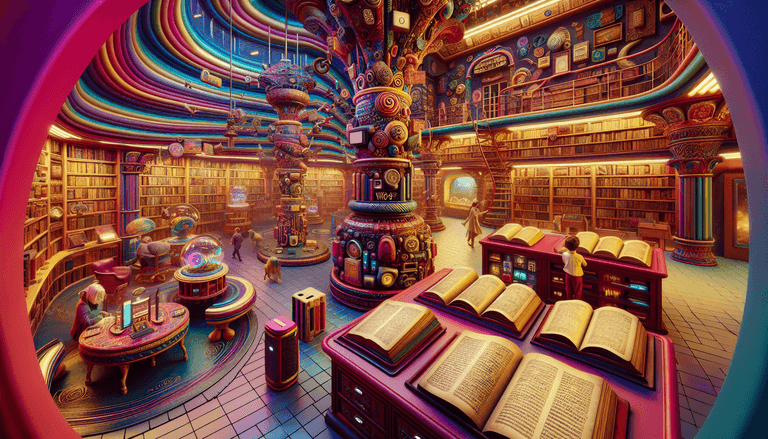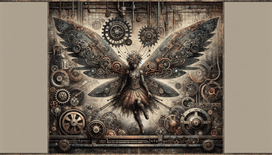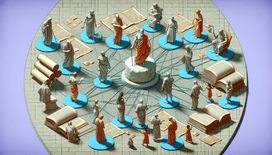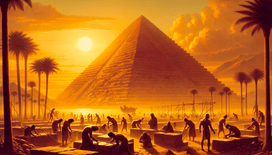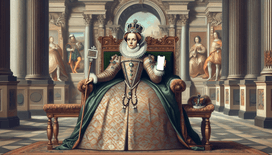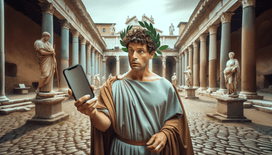Welcome, curious reader, to another whimsical journey through the corridors of time! Today, we're diving deep into the annals of history with our playfully speculative goggles on. Imagine with me, if you will, a grand merger of antiquity and modernity. Picture the mighty Library of Alexandria not as a bygone relic, but as a thriving nexus of knowledge, pulsing with the rhythm of Wi-Fi.
The Library of Alexandria: The Internet of the Ancient World
Ah, the Library of Alexandria! A name that invokes the image of learned scribes, endless parchment rolls, and the hum of intellectual debate. Established in the 3rd century BCE in the bustling city of Alexandria, Egypt, the library was the brainchild of Ptolemy I Soter no less. It was a wonder of the ancient world, boasting the largest collection of texts and knowledge that could, quite literally, boggle the mind. And boggle it would, for who needs Google when you've got Greek philosophy on tap?
However, for all its splendour, the Library lacked one thing we modern folk can't live without: Wi-Fi. But what if it wasn't just papyrus scrolls, but glowing screens that populated its grand halls? What if the alchemists of the ancient world stumbled upon the magical incantation for wireless connectivity?
Scrolls v Scrolls: The Knowledge Download of the Ancient World
Imagine, dear reader, a scholarly scene where philosophers like Archimedes and Euclid weren't just grappling with the limitations of quill and ink but wielding tablets (of the digital variety). With Wi-Fi in the mix, citation etiquette would have evolved drastically. Gone would be the dusty "re-cataloguing-day," replaced by the sleek and satisfying action of a simple click. Could it be the game-changing power of Ctrl+F would render even the most elusive quote effortlessly discoverable? As Herodotus might say, "Historians of the past shall rest their feet upon the shores of convenience." Well, perhaps slightly less eloquent than that, but you get the gist!
Let's Give History a Like
Picture Socrates uploading his Dialogues, with an invitation to debate in the comments below. "Dislike" buttons might have been a tad harsh on Plato’s mental wellbeing, but a well-timed meme could have kept the discourse flowing with good humour. Imagine Aristotle crafting Instagram stories - "Eureka! My thoughts on metaphysics explained in a 30-second video." It certainly would have upped his Aristotle-gram following!
Wi-far and Wide: Keeping the Network Alive
It's not just individual scholars who would have been positively charged by the Wi-Fi winds of change. The librarians, those tireless custodians of word and wisdom, could have linked libraries across the known world into an ancient Internet of Things. Manuscripts from as far afield as India and China might have been "beamed" directly into Alexandria's archive, no shipping delays, no papyrus posers.
Meanwhile, new arrivals to the city would no longer need to surrender their scrolls to refuel the collection; a simple Bluetooth file transfer would do the trick. "Please, don't burn my manuscript," a visiting scholar might protest, "just AirDrop it!" In this alternate world, the score 'sixth-century Augustan' would likely refer to a stellar Instagram filter rather than a critique of elegiac couplets.
The Darker Web: Risks of Digital Dominance
Alas, not all glistening tech brings only blessings. A mercurial element in the definitive fate of such spectral splendour would be, ironically, an inherent Wi-Fi downside, security. In an era where Trojan Horses were more than just a mythological tale, could the librarians have warded off virtual Greek viruses? Libraries being reduced to fiery ruins, it still gives us digital historians nightmares.
Yet, let's face it, any cyber calamity would surely pale compared to the outright tragedy of grainy photo memes doing the rounds after that apocryphal Caesar across the Rubicon fail. A digital Trojan Horse? Forgive the pun, dear friends, but we could call it Trojan Horsepower!
Conclusion: An Expansive Network of Knowledge
There you have it, that wistful world-in-waiting where the Library of Alexandria stood as the beacon of universal learning, Wi-Fi waves weaving knowledge and wonder through its ornate corridors. As T.S. Eliot didn’t say, "The world ends not with a bang but with excessive buffering." Through this playful haze of what-could-have-been, we are reminded that while technology reshapes how we connect with history, history itself is a potent beacon for curiosity and imagination.
Until next time in another temporally-twisted tale, stay curious and keep those questions wheeling! And also, for heaven’s sake, remember to change your Wi-Fi password every so often.
